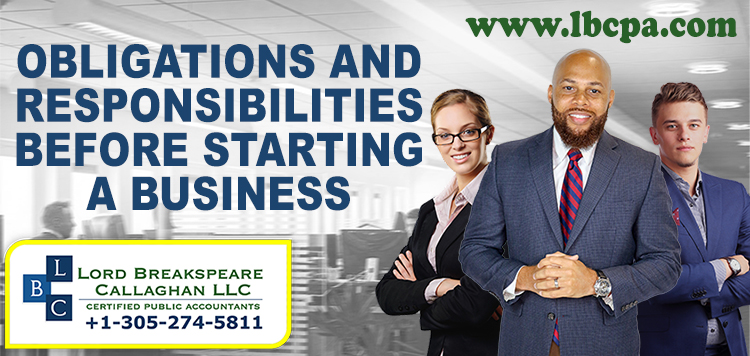LBCPA News 
Click here to go back
Tax Basics for Setting Up a Business

Starting a new business can seem overwhelming for new entrepreneurs or even seasoned professionals. The IRS has resources to help new business owners understand the tax responsibilities of running a business.
Here are a few things any entrepreneur needs to do when starting their business.
Choose a business structure
The form of business determines which income tax return a business needs to file. The most common business structures are:
- Sole proprietorship: An unincorporated business owned by an individual. There's no distinction between the taxpayer and their business.
- Partnership: An unincorporated business with ownership shared between two or more members.
- Corporation: Also known as a C corporation. It's a separate entity owned by shareholders.
- S Corporation: A corporation that elects to pass corporate income, losses, deductions and credits through to the shareholders.
- Limited Liability Company: A business structure allowed by state statute. If a single-member LLC does not elect to be treated as a corporation, the LLC is a "disregarded entity," and the LLC's activities should be reflected on its owner's federal tax return as a sole proprietorship.
Choose a tax year
A tax year is an annual accounting period for keeping records and reporting income and expenses. A new business owner must choose either:
- Calendar year: 12 consecutive months beginning January 1 and ending December 31.
- Fiscal year: 12 consecutive months ending on the last day of any month except December.
If an individual files their first tax return using the calendar tax year and later begins business as a sole proprietor, becomes a partner in a partnership, or becomes a shareholder in an S corporation, they must continue to use a calendar tax year unless they get IRS approval to change it or meet one of the exceptions listed in the instructions to Form 1128, Application To Adopt, Change, or Retain a Tax Year.
Apply for an Employer Identification Number
An EIN is also called a Federal Tax Identification Number. It's used to identify a business. Most businesses need one of these numbers, but some don't. For example, a sole proprietor without employees who doesn't file any excise or pension plan tax returns doesn't need an EIN. The EIN checklist on IRS.gov can help business owners know if they need an EIN.
It's important for a business with an EIN to keep the business mailing address, location and responsible party up to date. EIN holders should report changes in the responsible party to the IRS within 60 days.
Have all employees complete these forms:
- I-9, Employment Eligibility Verification U.S. Citizenship and Immigration Services
- W-4, Employee's Withholding Certificate
Pay business taxes
The form of business determines what taxes should be paid and how to pay them.
Visit the state's website
Prospective business owners should visit their state's website for info about state tax requirements.
If you have any questions regarding Essential Business Accounting, Domestic Taxation, International Taxation, IRS Representation, U.S. Tax Implications of Real Estate Transactions or Financial Statements, please give us a call at +1-305-274-5811
Source : IRS






